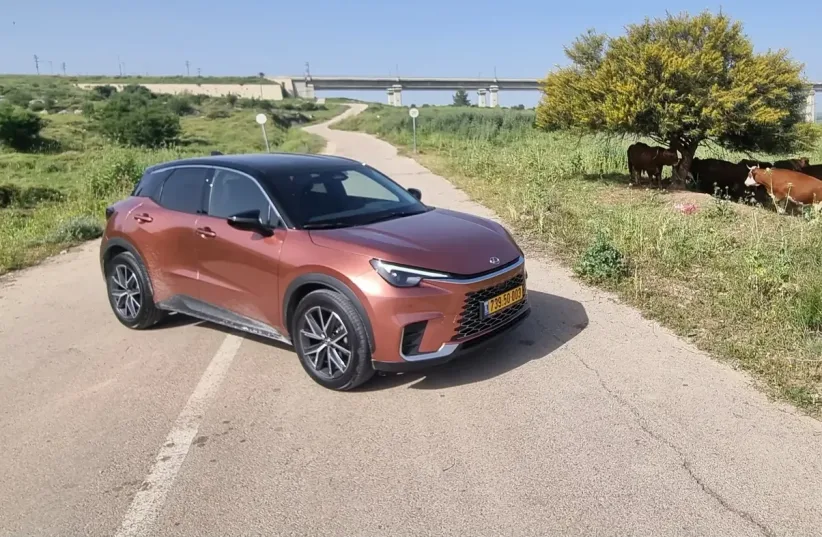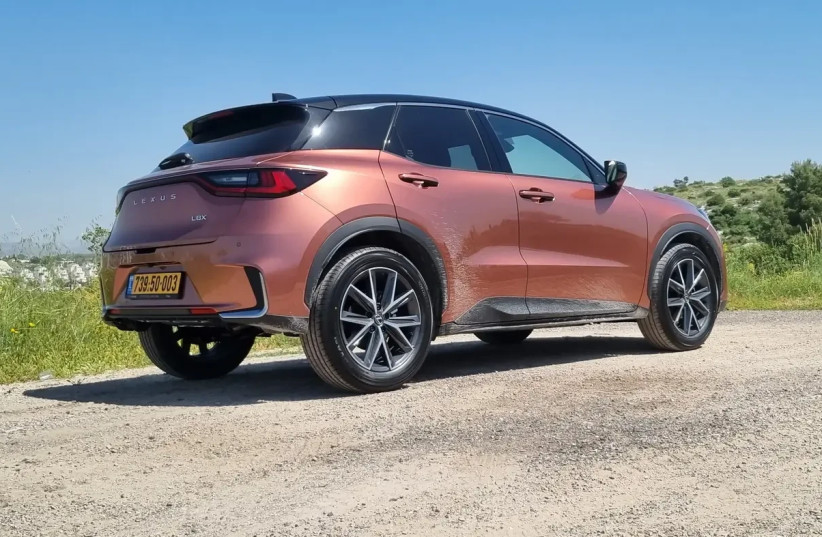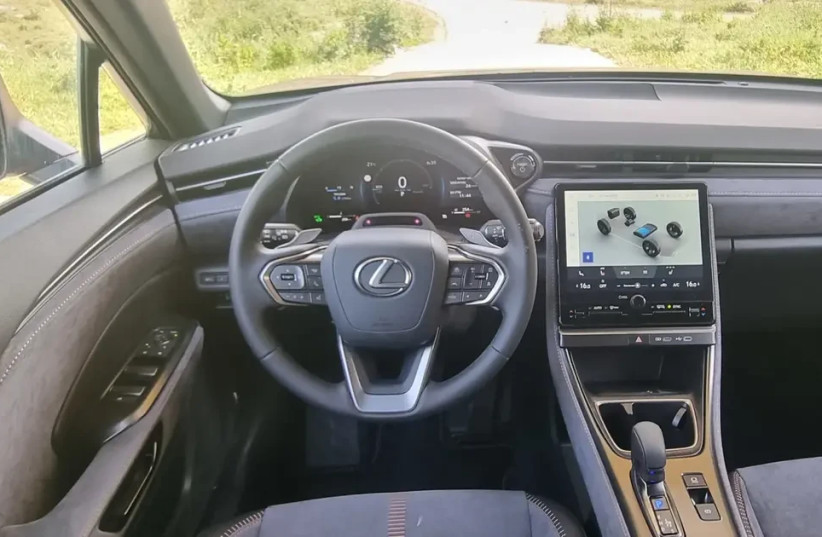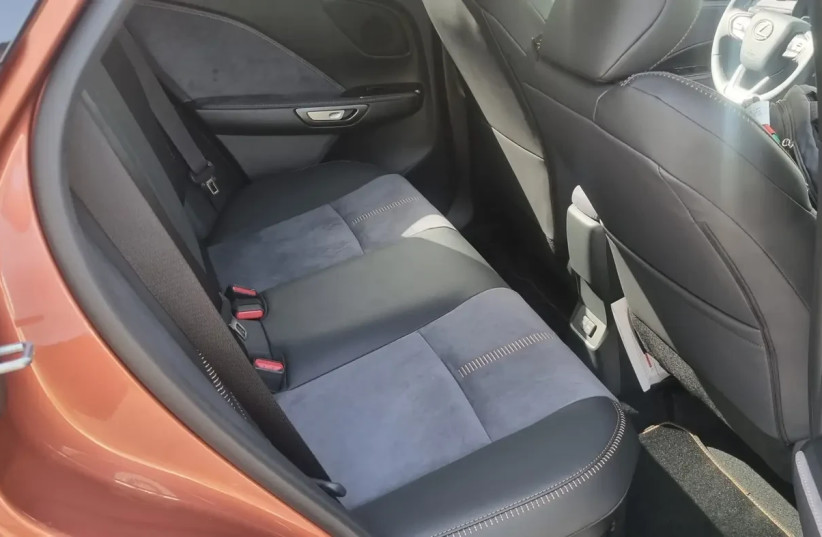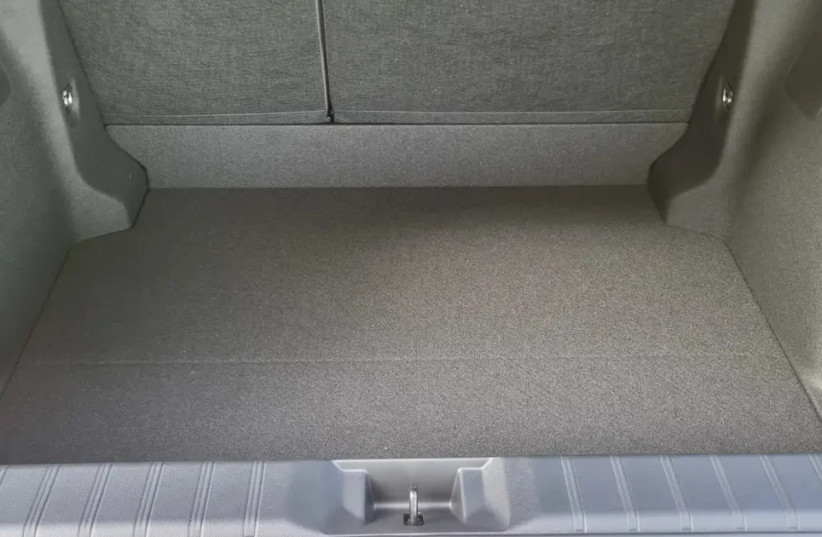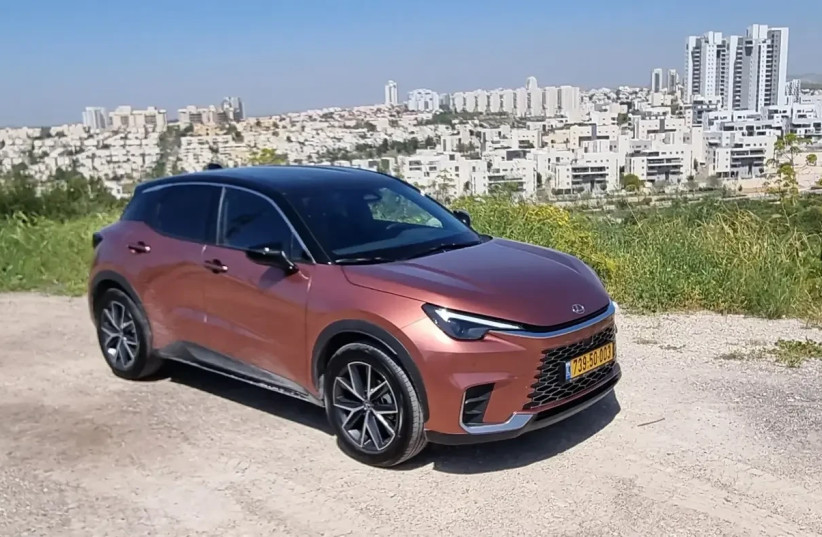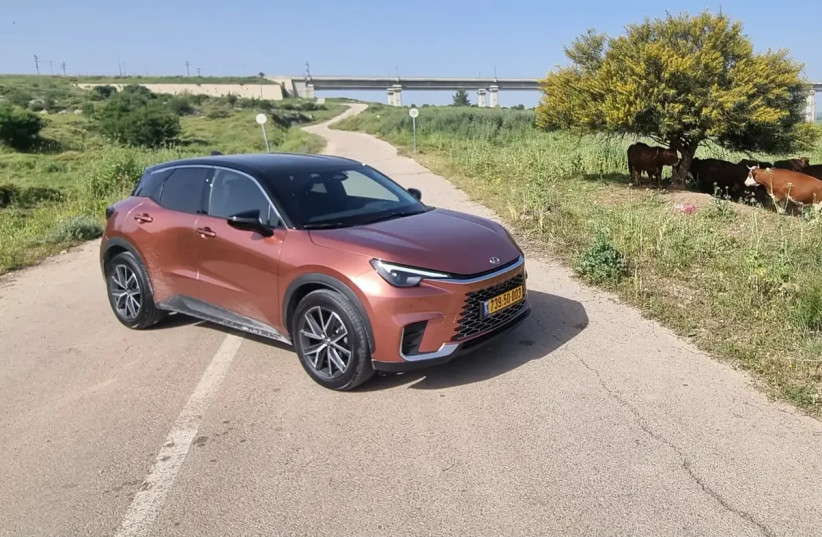Price: NIS 200-226K Competitors: Audi Q2, Volvo EX30, Smart 1, DS3 CrossbackLiked: Design, Quality, Fuel EfficiencyDisliked: Limited Rear Space, PerformanceRating: 8.5/10
For years, Lexus LS was an odd creature, competitive in Toyota's Tel Aviv showroom, but resembled upscaled Avensis/Corolla, with vague branding.
After expanding beyond Japan and the US with new models, especially crossovers, and establishing showrooms and a dealer network, Lexus quickly gained market share in Europe. In 2023, Lexus sold 825K cars worldwide, a 32% surge in a year, leaving Mercedes, BMW, and Audi envious.
Germans still outsell Toyota's luxury division twofold, but they're closing the gap. In the next two years, Lexus estimates passing the million mark annually, largely thanks to this car. The LBX is the hybrid crossover, based mechanically on Toyota's Yaris Cross. If Germans can sell you an Audi based on Skoda and Volkswagen, why not let the Japanese? It returns Lexus to a market it abandoned in the early 2010s when it stopped making the CT200h hybrid, itself based on the Auris.
For the first time in years, Lexus Israel has a model priced under 200K shekels, even if it's just 100 shekels less, and only for the base finish among the five options. A substantial sum, but comparable to Kia Niro electric's list price, and cheaper than Audi A3 petrol (from 207K shekels) or BMW Series 1 (from 220K shekels), certainly Mercedes A-Class (from 300K shekels). LBX may be slightly smaller than a compact car, but taller, aiming for a more luxurious customer.
Are they right?
Design: The LBX looks great with its two-tone paint, appropriately placed nickel accents, and large Lexus branding at the rear. It's modern without being overdone like many Chinese cars, not as aggressive as Germans. With dimensions of 4.19m length, 1.825m width, 1.56m height, and a wheelbase of 2.58m, it's longer and has a longer wheelbase by 2cm compared to the Yaris Cross, and it's six cm wider, giving it more balanced proportions.
Interior: If you still measure car quality by door weight, here's a real wake-up call. LBX emphasizes it's not a Toyota, not that there's anything wrong with being one, with hefty doors, high-quality finishes, and an elegant interior, with electronic opening instead of a simple handle.
Inside, you get all the usual components, a 9.8-inch multimedia screen, a 12.3-inch instrument panel, but it's all almost intuitive and easy to use, without having to hunt for treasures among the screens like in most cars at this price. Except maybe for the climate control, operated by a combination of buttons and a screen.
There's no fussiness or gimmicks here, even if you occasionally spot a familiar Toyota button. Material quality is entirely in the luxury realm.
Front space is good, but at the back, it's passable, not generous. The seating position is high, and headroom is excellent, but the door aperture isn't generous enough for adults to enter the rear seat comfortably. And more disappointingly, a new car in 2024 without rear AC vents is already bordering on climate crisis denial. At least there are two USB sockets, which you can connect to a rear seat fan or an Express air pump, giving children something to engage with.
Cargo space is reasonable, at 402 liters, although there's no spare wheel to steal space. At least there's lighting and tie-down rings.
Equipment: The offer includes five finish levels.
Elegant Base (from 200K shekels) comes with 18-inch alloy wheels, a 9.8-inch multimedia screen, including wireless Android Auto and Apple CarPlay, and a 7-inch screen in the instrument panel. There's also split climate control, synthetic leather upholstery, front seat heating, front and rear parking sensors, light and rain sensors, and more.
Elegant Plus (from 210K shekels) upgrades to a full digital 12.3-inch instrument panel and adds a smart key, electric opening for the cargo compartment, wireless charging for mobile phones, and rear USB sockets.
Emotion (from 215K shekels) adds sporty seats with red stitching, dark rear windows, and a two-tone color scheme.
Relax (from 221K shekels) adds an electrically adjustable driver's seat, real leather upholstery, leather-covered steering wheel, paddle shifters, and ambient lighting, but loses the two-tone color scheme.
Cool (226K shekels), the top finish we drove, brings back the two-tone color scheme and swaps to combined leather and alcantara upholstery with copper stitching.
Safety: The safety equipment is the same in all finish levels: autonomous emergency braking front and rear, adaptive cruise control with lane keeping assist, lane departure warning, blind-spot detection, rear cross-traffic alert, automatic high beams, traffic sign recognition, rear and cross traffic monitoring, safe exit system, and more. The LBX has not yet been tested by the European crash test.
Engine and Performance: Under the hood is Toyota's new small hybrid powertrain, 1,500 cc, 3 cylinders, but with 136 hp instead of 116 hp, paired as usual with a continuously variable automatic transmission.
The LBX is 100 kg heavier than the Yaris Cross, so the extra 20 hp is only felt in acceleration, but definitely there. The performance is decent in 'Eco' mode, improving in 'Normal', and quite good in 'Sport'. There's no electric kick, but the agility is swift, the engine's sound surprisingly different from the Yaris Cross, more bassy and muscular, and even the CVT is less noisy and jerky with throttle inputs.
Fuel consumption of 17 km/l in our test days was slightly less than expected, and we've received in the past with the Yaris Cross, but still very good.
Comfort and Road Behavior: The LBX isn't designed to reach the US, which means Lexus admits it's not particularly spacious, but also possible a European suspension tuning. Despite the height, there's no body lean in corners, the steering is precise, and the LBX has an agility lacking in electric cars this size. It comes at the expense of ride comfort, which isn't perfect on Israeli roads, feeling a bit bouncy, especially at urban speeds. Highway cruising is relatively quiet and isolated.
Bottom Line: Lexus kicks for an empty goal here. Audi Q2 is quite seasoned, DS3 Crossback is a bit small, failing to gain momentum, and in Israel, it's purely electric. LBX has no direct hybrid competitor but electric ones at the same price range, notably Volvo EX30 and Smart 1, spacious and faster yet less refined, behaving, and demanding compromises that come with an electric vehicle, involving range anxiety and constant charging concerns.
Against them, Lexus offers a good compromise in environmental quality, with hybrid fuel consumption and without the heavy pollution created during the production of larger batteries in electric cars. We wouldn't be surprised if its depreciation is slower too.
It mainly provides a proper feeling of an entry model into the luxury market, lacking in competing electric cars. Rumors of its gasoline engine's demise were premature.
Technical Specifications: Lexus LBX
Engine: Gasoline 1,490 cc + Electric motor, Combined power 136 hp
Transmission: Automatic CVT. Front-wheel drive
Dimensions:
Length (m): 4.19 Width (m): 1.825 Height (m): 1.56 Wheelbase: 2.58 Cargo volume (liters): 402 Weight: 1,280 kg
Performance (Manufacturer's):
0-100 km/h (seconds): 9.2 Top speed (km/h): 170 Combined fuel consumption (km/liter): 21.7 Test fuel consumption (km/liter): 17
Safety: European crash test rating: Not tested. Active safety: Autonomous emergency braking for forward and reverse travel, Adaptive cruise control, Lane departure warning, Cross-traffic alert, Automatic high beam
Warranty: 3 years or 100,000 km for the vehicle, 5 years or 150,000 km for the battery.
